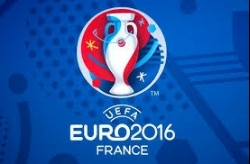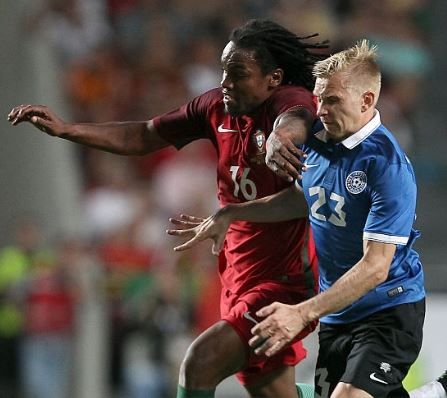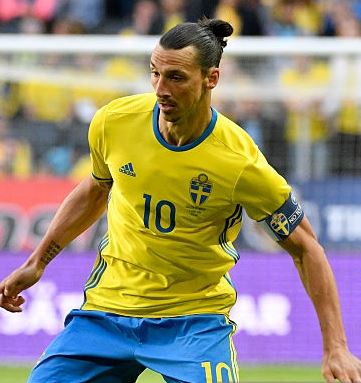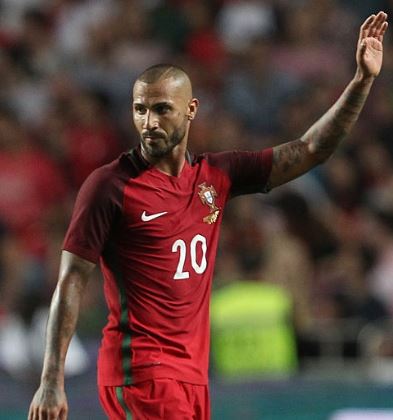Perspective and predictions for the Seleção's Euro 2016 campaign
One more day separates us from the start of the European Championship in France. As PortuGOAL.net gears up to provide an unprecedented level of coverage on all things Seleção, Nathan Motz has provided a rough supporters guide for everyone from the casual observer to the rabid enthusiast.
Start here to prepare yourself for the journey and stay tuned to PortuGOAL.net for daily coverage from the big show in France.
Supporters all over the world now find themselves in that quiet place just before the storm of a major tournament. It is a time when their favoured nation’s odds of victory should be contemplated (honestly, if at all possible). We all want reassurances for the quality of hope that we invest in our national team’s chances. But hope is a risky business. Just ask England.
However, all joking aside, let us attempt to confiscate our bias and ask that all-important question: Can Portugal really win? And if so, how might they go about doing it? What will our path to victory look like?
With my own European adventure set to unfold in only a few days, I decided to outline the factors that are most relevant for predicting the fate of our beloved Seleção. In a piece that is one-part retrospective and one-part analytical, it is my hope that we will all be better prepared for the storm of emotions that we will be subjected to over the course of the next 5-6 weeks. Euro 2016 is almost upon us.
1. To win, we must be united
I read something recently that reminded me of one of the more important football proverbs. In February 2012, UEFA wrote an article about the common qualities of past European Championship winners that I found illuminating. Much to my dismay, the article initially focused on Otto Rehagel’s work with Greece in 2004. But there were two factors that every Euro winner cited that must be carefully considered. First, resolute leadership and a unifying vision are found to be hallmarks of European championship winning sides. In Otto Rehagel’s case, it was no accident that Greece employed a tactically closed, counterattacking style. They had planned that way from the beginning. Throughout preparations for Euro 2004, Rehagel talked them up as the underdogs that would shock the world. The players believed him, Greece did shock the world, and at Portugal’s expense too.
Second, past European Championship winners describe a palpable harmony with their fellow teammates. Unit solidarity is a critical X-factor.
Consider Portugal’s recent tournament history, and how team unity (or the lack thereof) impacted their campaigns. At Euro 2008, Scolari announced during the tournament that he would be taking over at Chelsea, an ill-advised revelation that disturbed the team’s concentration. After the 2010 World Cup, when Cristiano Ronaldo was asked why they lost to Spain, he responded with “ask Queiroz,” a statement that revealed the discontent that he felt about his role during the tournament.
I contrast that with the ambiance surrounding the team in Ukraine during Euro 2012. There was such a sense of composure about the way they carried themselves that I sometimes questioned whether they were taking the tournament seriously or not. There was consensus about their fundamental mission. They believed in their own abilities and in each other even when nobody else did. I remember urging fans not to count Portugal out of Euro 2012 before it even began, and one of the reasons was because I could see how effective Bento was (at least initially) at stabilizing the team’s morale. He was stubborn, yes, but also driven, and he forged an identity that resonated with the players. Their rapport with each other was remarkable, and they came so very close to fulfilling their ambitions.
Now we must begin our inquest. To what extent, if any, is the current version of the Seleção united? It might be too early to make predictions about how well the players get on, especially since multiple players did not arrive until the end of May or early June (UCL final or domestic cup obligations). But João Moutinho did offer us one important clue. In an interview from the first week of training, Portugal’s midfield lynchpin declared that “status means nothing” when asked how he would feel about not making the starting eleven. For a player as integral as Moutinho to say that speaks volumes about the mentality of the squad.
There is a rare positive energy surrounding the Portuguese camp at the moment. This is part of the reason why I know Ronaldo’s condition is not as serious as it was in 2014. The players do appear to have bought into the vision that Santos has for the squad, and they exude confidence in their post training interviews.
Still, you could argue that Portugal’s Group F opponents won’t inspire the same fighting spirit as a Group of Death scenario might. Aside from Austria, whose foundation is comprised of primarily German Bundesliga talent, Portugal does sit on the favourable side of a rather sizable gulf in individual quality. But Portugal fans need little reminder that these type of situations often backfire. Portugal’s 0-1 defeat to Bulgaria in March bears testimony.
Portugal’s 7-0 victory over Estonia was surely crucial in synergizing the players, but friendlies are simply not the same as competitive matches. We must respect the fact that Portugal also destroyed Ireland 5-1 before the World Cup 2014 debacle, and lost 3-1 against Turkey prior to the sensational run to the Euro 2012 semifinals.
Regarding the Estonia match, I will give the players credit where it is due. With each passing minute, I saw our decision-making improve, our passing accelerate, our runs better-timed, and the players excelling in individual duels. That performance, while difficult to replicate on every level, is what I hope the template will be for our Euro 2016 campaign: patient build-up, efficient defensive pragmatism, and electric individual contribution. Ronaldo will not have to drag this team over the finish line. In fact, they may have to drag him, but they can, and that is the mark of a real team.
The team needs to coalesce early. This is why, in my opinion, our most crucial match will be against Iceland, who habitually punch above their weight. Similar to Portugal, they thrive in big matches, as evidenced by their victories against the Czech Republic, Turkey, and the Netherlands (home and away) in qualification.
Though not without flaw, Portugal’s performances against Norway (sans Ronaldo) and Estonia bode well. In the past, Portugal have laboured just as much as they did against the Norwegians in pre-tournament friendlies with one crucial difference: they couldn’t score at all (e.g. vs Poland & Macedonia, pre-Euro 2012). Winning even while not playing their best is a major indicator of team unity and belief. Every team that has ever won a championship of any kind has had to win ugly at some stage. Look at Spain’s run in the 2010 World Cup.
There are other determinants of team unity of course. Age, experience with the national team, physical conditioning, etc. But the blueprint for success comes from the top. If Santos can preach a clear message that consolidates the players into a cohesive unit with measurable, achievable goals, this team will be very difficult to overcome. Individual quality is no longer an issue.
2. To win, we must score first
In my research for this article, I uncovered an astonishing statistic. My intent was to understand how well Portugal respond to taking the lead and conceding goals. Between March 2006 and the present, I added up the total number of matches that Portugal have played, excluding 0-0 draws and matches decided by penalties.
Of these matches, I pondered, how many did Portugal come from behind to win? The results were shocking. There were 45 matches during this period in which Portugal did not score the first goal. Of these, Portugal came from behind to win a grand total of 3 times. In over 10 years of international competition, they lost 34 of the 45 matches and drew the remaining 8.
But that wasn’t all. Portugal were first on the scoreboard in 77 matches during this period. They won an extraordinary 67 of those matches, drew 7, and lost only 3.
Let there be no mistake, Portugal is not adept at overturning deficits, but we are very hard to beat if we score first. While I recognize that statistics are not always the law, they do paint a fairly ominous picture in this case.
When you consider our usual tactics, it is clearer why we must score first if we are to have any hope of winning this tournament. Going a goal-down requires a change in strategy. The back line must advance further forward, shortening the field and clogging up space in the opponent’s end of the pitch. One of the best tactics for circumventing a congested defensive posture is to carry the ball wide and deliver crosses into the box. But there’s a well-known problem for Portugal in this regard: we don’t have a quality target man. Portugal might have substantial quality on the wings, but no competent striker to finish when it matters.
Éder might have something to say about that after scoring and generally playing well against both Estonia and Norway, and Ronaldo will be a huge threat in the penalty area in a 4-4-2 schematic. But the fact remains that Portugal prefer a counterattacking game that cannot easily accommodate the requisite come-from-behind tactics.
I would like to finish this section on something of a high note by reminding fans that one of our three comeback victories of the last decade was at Euro 2012, a dominant 2-1 triumph over the Netherlands. Furthermore, if we do score first, our odds of victory are mathematically substantial.
3. To win, we must be ready for extra time & penalties
Over the last 5 Euros, almost 43% of the knockout round matches required extra time and/or penalties to settle. Portugal was involved in several of these matches including the Golden Goal defeat by France at Euro 2000, and of course the infamous semi-final shootout loss to Spain in 2012. The bottom line is that serial champions are psychologically and physically prepared to win all phases of a game, whether it lasts 90’ or 120’, whether it includes penalties or not.
In addition to their penalty-kick triumph over Portugal, Spain knocked out Italy on penalties in the quarterfinals of Euro 2008 and beat the Netherlands in extra time of the 2010 World Cup final. Germany won 2 of their 4 knockout round matches in extra time en-route to the 2014 World Cup title.
These results tell me something important about the nature of winning: it is, in many circumstances, a nasty affair. It is not the majestic and immaculate process that we often envision it to be. Rather, it is torturous and complex, and often degenerates into more of a contest of wills than footballing ability.
Portugal’s victory over England on penalties at Euro 2004 is a prime example. Forced to chase the game from the 3rd minute onward, Portugal equalized with 7 minutes to go in normal time, then took the lead in the second period of extra time. Lampard’s equalizer forced penalties, but England’s demise at the hands of Ricardo is evidence of a recurring dilemma that English football has yet to resolve. This problem, how to negotiate extra time and penalties, is why England haven’t progressed beyond the semi-finals of a major tournament since 1966.
Conversely, the Portuguese Golden Generation, having won two youth tournaments together and in front of an expectant home crowd, fought to the bitter end. Portugal’s tragic defeat to Greece in the final merely affirms the inherent cruelty of football. Talent, planning, luck, injuries, refereeing, and other factors all play their respective roles. But the will to survive beyond the 90’ mark stands out as a crucial element.
This is especially relevant for Portugal because of the possibility that we’ll meet Italy in the Round of 16. If that happens, I assure you that from the opening whistle Italy will be playing for penalties as they are enduring a crisis of their own in the striker department.
Euro 2016 Prediction

Making predictions can have chastening results since reality often chooses to diverge sharply from an anticipated outcome. But prediction is simply a game of probability, assessing the most likely scenario. It is this spirit of prediction that I would like to capture, not mere determinism, but a probability based discussion on Portugal’s path to victory.
Group F
Portugal’s three group matches are staggered nicely in my opinion. We open against the Euro debutantes and close against the weakest team with our toughest match (on paper) sandwiched in between. I actually think Iceland will come after us in our opening match, an unwise decision that will cost them. The first goal scored in that match is crucial (as discussed), but in a contest of two forward thinking teams, Portugal have more diverse talent, more experience, and Cristiano Ronaldo. I think the match will be excruciatingly close until we find a late goal to pad the scoreline. Portugal win 3-1.
Austria is concerning because of their German Bundesliga midfield contingent. They have an experienced veteran (and EPL winner) in Christian Fuchs, a creative force in David Alaba, and a Premier League quality winger in Marko Arnautovic. They scored for fun in qualifying, but still only allowed 5 goals and went undefeated in 10 matches.
In a game like this, major tournament experience is essential, and Austria are lacking in that department having not ever qualified for a Euro (excluding 2008 when they were hosts). Looking at Portugal’s form under Santos, it is clear that he values defense and a clean sheet above attacking impetus. Austria will also be difficult to breakdown. I think this will be a cagey affair. Individual brilliance will have to make the breakthrough.
With all due respect to Austria, I just do not think they have seen a team as talented as we are from top to bottom. They may have allowed only 5 goals in their group, but so did Russia and even Sweden’s defence allowed just 9. I’m not thrilled with how we stack up on both sides of the ball, and our head-to-head record isn’t favourable against them, but this match has “Cristiano Ronaldo” written all over it. Portugal win 2-1.
Hungary would undoubtedly play for a draw if this match were the group opener, but I expect the Magyars to come into this match with zero points. In that type of situation, they have to come at us, and unless they score first we should have a field day. If they have somehow earned points against Austria or Iceland, the complexion of this game will be very different, but I think the odds of that scenario are quite long indeed. Portugal win 4-0.
Knockout Round

Against Sweden, we again face Zlatan, who will be searching for an appropriate swansong for his sensational career. But Sweden are fortunate to even be at the Euros having finished behind both Russia and Austria in qualifying and scraping past Denmark in the playoffs. If I were Fernando Santos, I’d pick Rafa or Quaresma opposite Ronaldo in a straight 4-3-3 with Eder up top and counterattack them at pace. Portugal win 2-1.
In the quarterfinals, Portugal would almost certainly play the winner of Group B because their Round of 16 match is against a 3rd place finisher. England is the most probable candidate, and our tournament history with England is as dramatic as it is complex. This will be an emotional event. Similar to previous meetings between the two sides, it is difficult to pick which one is more talented. England have their own up-and-comers in Dele Alli, Harry Kane, and Marcus Rashford, but lack an X-factor like Ronaldo.
England’s 1-0 victory in last Thursday’s friendly reveals almost nothing about how a quarterfinal might look between the two teams. Red cards obviously change everything. You could argue that 10-man Portugal did quite well against England. But Portugal created almost nothing prior to Bruno Alves’ sending off. Zero shots on goal in 90 minutes will have to be improved upon.
This game is nearly too close to call. England bring the youngest squad to the Euros. Cristiano Ronaldo + Portugal’s experience will make the difference. Portugal win 1-0 in extra time.
It’s hard to envision Spain not making the semifinals. Group D is complicated, but if they win they get a third place finisher in the Round of 16 and a Runner-Up in the quarterfinals. It doesn’t get much easier than that.
Spain. What is there to say? We know what they’re going to do. They know what we’re going to do. By this point in the tournament, if we haven’t sustained any major injuries or yellow card suspensions, I actually think we will have a chance. But even though my heart wants this to be a Portugal victory, I just don’t know how we’ll contain them defensively. We have talent in midfield, they have more. We have Ronaldo, they have serial champions all over the pitch. And David de Gea is a match-winning keeper in and of himself. Yes, they lost to Georgia in a pre-tournament friendly, but Spain are relatively healthy and will be looking for redemption following their nightmarish 2014 World Cup campaign. Portugal lose 1-0.
There you have it, Portugal out in the semifinals. A few months after Portugal were eliminated in the Group stage in Brazil, I said that Euro 2016 would come just a few years too soon for the best of our young generation
Then again, I also wrote years ago, maybe as far back as 2010, that Ricardo Quaresma still had some role to play in the Seleção’s pursuit of glory. Wouldn’t it be so much grander if that prophecy was proven true?
Another summer of football is here and if there is any prediction I am willing to stake my reputation on, it is this: the Seleção are going to compose yet another thrilling chapter in their endearing history. Nação….Valente. The two words written on the interior sleeves of the national team jersey. Bravely, Portugal enter the tempest of Euro 2016. United. Resolute. Não somos 11, somos 11 milhões.
Força Seleção Sempre.
by Nathan Motz


